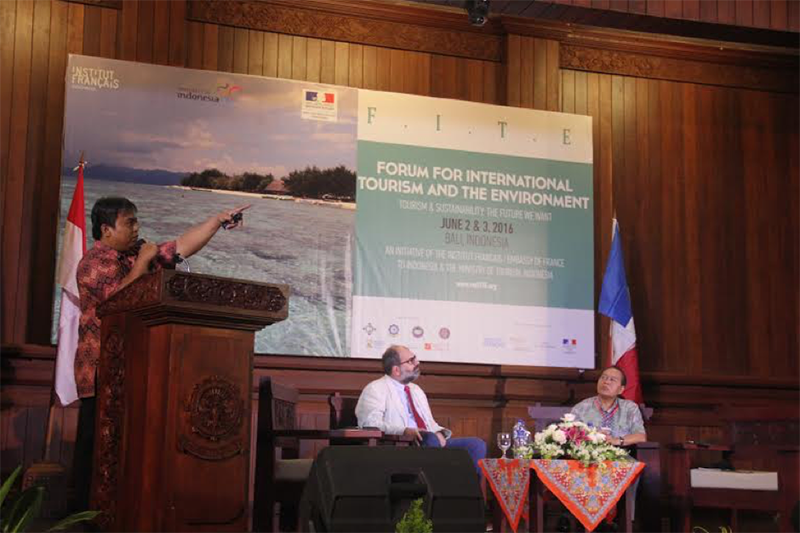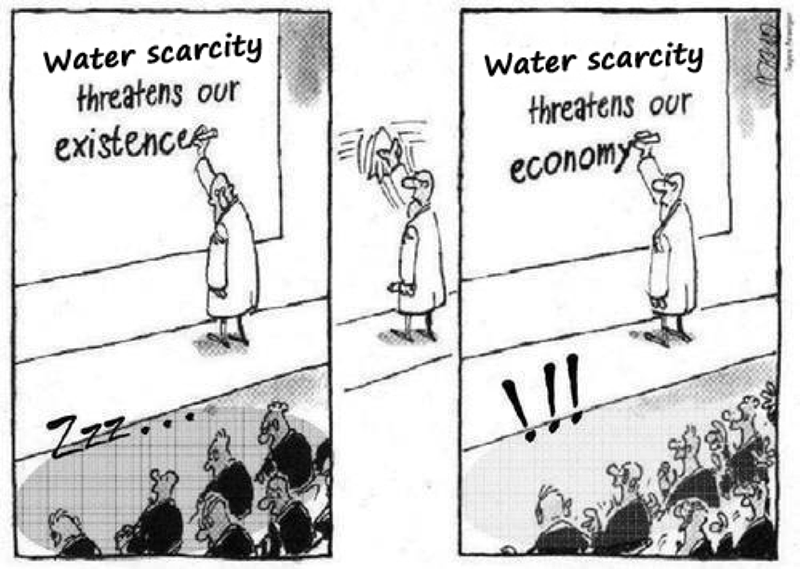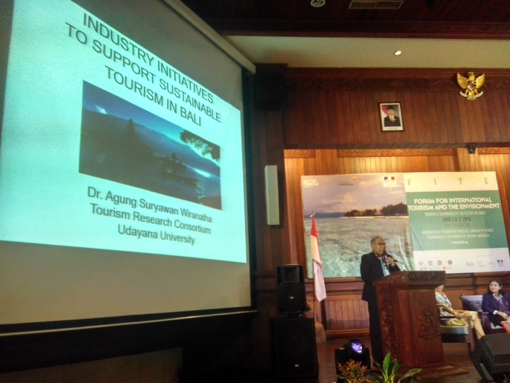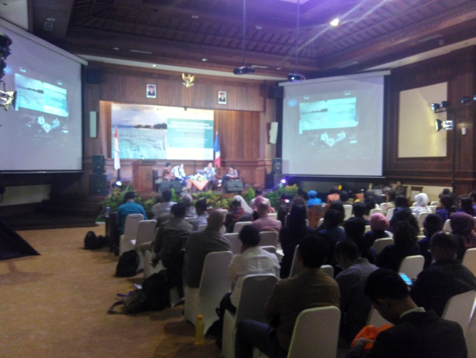Sustainable Tourism: the future we want to save Bali’s freshwater
Bali’s future change-makers have announced the future they want for Bali is “sustainable tourism”. The question is “how will Bali achieve sustainability goals with a business-as-usual approach?
IDEP Foundation joined a leading panel of noted conservationists, academics, tourism agencies and futurists to discuss the way forward at the “Sustainable Tourism: the future we want” Conference – part of a Forum for International Tourism & the Environment (FITE) event organised by Institut Français d’Indonesie and Indonesia’s Ministry of Tourism in Indonesia, held at STP Bali in Nusa Dua on 2-3 June, 2016.
IDEP Foundation was invited to the conference as community sustainability and disaster resilience experts to present the Bali Water Protection program (BWP) - discussing the impact of mass tourism on Bali’s freshwater availability.

(Photo courtesy of Alliance Française)
IDEP’s Ade Andreawan (above left) joined the panel on “Reasoned agriculture, culture and tourism development: lessons learned in Bali” – the theme for student dialogue, research and publication on sustainable tourism to tackle the critical issue of mitigating tourism toward better sustainable practices, aligned with the need to protect the agricultural sector.
Avoidance of a Bali water crisis - at all costs - should definitely be the priority of all tourism actors working toward future “sustainability”. Business risks, such as a shortage of fresh water, for hotels and other businesses would mean risks for pollution and increased costs of water treatment. Clearly we are nearing a tipping point leading into a water crisis that, if not addressed, will have a severe impact on local farming practices, residents and the entire tourism industry.
Water conservation is a relatively new concept on Bali – formerly a tropical island paradise of unlimited natural resources – and IDEP’s expertise research sources shows that 65% of Bali’s freshwater supply has now been consumed by the tourism industry while 80% percent of the island’s economy depends on tourism-related business (Jakarta Post, 2012), directly employing 28% of the Bali’s work force, providing 674,600 direct jobs (SEI International). So important is water to the Bali economy that, if a natural disaster such as water scarcity or heavy water pollution occurs, the impact may be greater than we think.

Lessons from other countries such as Thailand or Vietnam should be learned - now suffering annual water shortages from rapid and unplanned tourism development - so that Bali does not suffer from the same mistakes.
Importance of sustainability in tourism was strongly highlighted in conference discussions, but there were very limited dialogues concrete actions to be actually taken to improve the sustainability of the tourism industry. Limited, low-impact actions are now not significant enough – it is time to go beyond turning off the light in unattended rooms or implement linen reuse programs.

As often, the responsibility of action has been assigned to those who were not present instead of focusing on what we can do ourselves, bypassing the role of the dormant actors.
Bali Water Program was stand alone in offering an actual solution to be implemented – but it will not solve all the issues, including the water concerns, unless cohesive plans and actions are taken seriously by the entire tourism industry.
Other conference highlights featured student inputs, with a competition of student video essays from France and Indonesia. We have been amazed by the level of concerns that the future tourism professionals have presented and it sure gives us a great amount of hope for when they will enter the job market.

In between concerns and hopes, this chapter of the Forum for International Tourism & the Environment - with high-level delegates and panellists from Conservation International Indonesia, Embassy of France, Indonesian Ministry of Tourism, Bali Tourism Board and local Faculties of Tourism and Ocean & Fisheries – shows our future tourism professionals are ready to move toward better sustainability.
Nature needs it, their own survival also depends on it, and to find tourism industry sponsors to support the Bali Water Protection program would definitely be a step in the right direction.
More information about BWP http://www.idepfoundation.org/en/bwp/summary.
Subscribe to IDEP Newsletters
Give a gift that will change lives. 100% funds charity projects.
|






